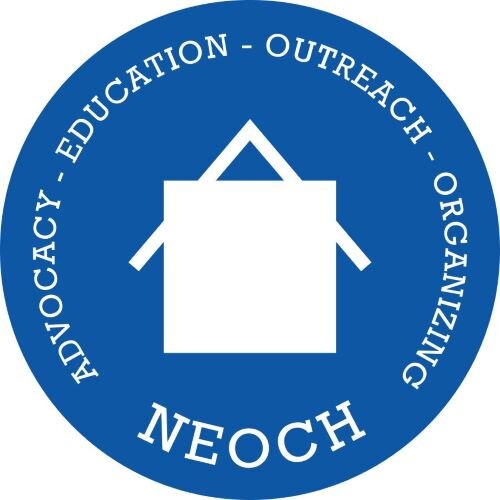Social Engineering Article in the Plain Dealer

She goes on to misstate the population as not having been born here and do not own property. This seems like either a criticism of absentee landlords or tenants in general, because it is clear that most recipients of a housing voucher are Clevelanders who may have to relocate to a new neighborhood but grew up in the area. They have a hard time finding a landlord who will accept a voucher with a property that can pass Housing Quality Standards. Landlords need to maintain their properties not tenants. Then she goes onto mischaracterize Habitat for Humanity, which does provide on-going support to their mortgage holders to help them with housing maintenance issues. To answer your question Ms. Melillo, these people are here because they need housing and the vast majority are law abiding good neighbors. You need to look at your own prejudices and misdirected anger to understand why you have this bias against people who you perceive as different than you.
Mr. Koff's article does not touch on the racisim, classism and government obstacles put in the way of developing affordable housing outside of the urban core. The letter in response to Koff's article shows how hardened stereotypes are in this community toward clients of CMHA. The HUD Secretary can gather all the data he or she wants, but in the end if Cleveland Hts demands to know every Section 8 tenant in their city or the Lakewood Mayor runs on a platform to reduce the number of "Section 8 tenants" in his city, there is no way to de-concentrate, social engineer or reduce segregation. This is common sense that we should have every opportunity for disadvantaged populations to move to neighborhoods in which they will have a better chance for success. The problem is that these suburban communities do everything they can to block the development of affordable housing. It is so difficult and expensive to bring a case forward against a community that is violating the 1968 Fair Housing Act.
The Housing Center in Cleveland does a job training and informing tenants about their rights. They challenge buildings that are built without access for disabled individuals, and protect against "redlining" in the insurance and mortgage markets, but the problem is so overwhelming and complicated. In nearly every suburban community and in the City of Cleveland, the Housing Authority has to turn over the list of Housing Choice voucher holders to the local Community Development departments. What these government officials do with this data is unclear and not spelled out in the agreement. In addition, there are no fixed shelters outside the City of Cleveland, so poor people in the suburbs who lose their housing have to go to another City for help. There are very few subsidized housing units developed outside the City of Cleveland, because of community opposition. No matter how many stats one community gathers the concentration of poor people in a few communities will not change. The City of Cincinnati in a cutting off their nose response banned the development of affordable housing until the suburban communities began developing affordable housing.
What happens if we use the evidence provided by HUD to show that we should not build any more affordable housing in the Central, Mt. Pleasant or Glenville neighborhoods? We won't have any affordable housing left. The current housing needs replaced and if we wait until Ms. Melillo and her kind accept public housing residents we will have to double or triple the number of emergency shelter beds. We need a percentage of every development in the community to also develop affordable properties. So, if Solon offers infrastructure improvements (roads, water, sewer, telephone) for a 30 unit housing development five of those units should be sold or offered to low income tenants or mortgage holders.
I live next to a Housing Choice Voucher holder and have for years. The tenants are fine quiet people trying to earn enough money to get a better place. The landlord is the problem. The landlord does not keep up his property. He does not mow the lawn. He is slow to do maintenance on the property. He took out the sidewalk and replaced part of it at the request of the City, and just piled up the old broken up sidewalk behind his garage. He fixed up the place to pass inspection, but does not maintain the place. He gets paid by the government every month the same amount of money, and he is not keeping his property up to the standard of the neighborhood. But, this can happen with some homeowners as well who you may not get along with or those struggling with finding regular employment. I don't think my neighbor is representative of the Housing Choice Voucher program (Section 8), and I don't think it is fair to point to a "culture" of a person or those who get help with their rent as representative of anything. Bad neighbors come in all races, backgrounds, and economic levels. Be glad if you have good neighbors because you never know.
The Plain Dealer article fails to take into account the local reality. The Plain Dealer does not look at all the barriers to affordable housing. All the historical attempts to keep blacks in certain neighborhoods are not discussed. Finally, we are never going to advance equality issues if we are stuck on labelling the tools for implementing civil rights era legislation as "social engineering." How do we begin to talk about Fair Housing II with greater protections for lesbian and gay renters or source of income protections, when we can't even agree that forcing all the poor people to live in the same neighborhood doesn't help anyone?
